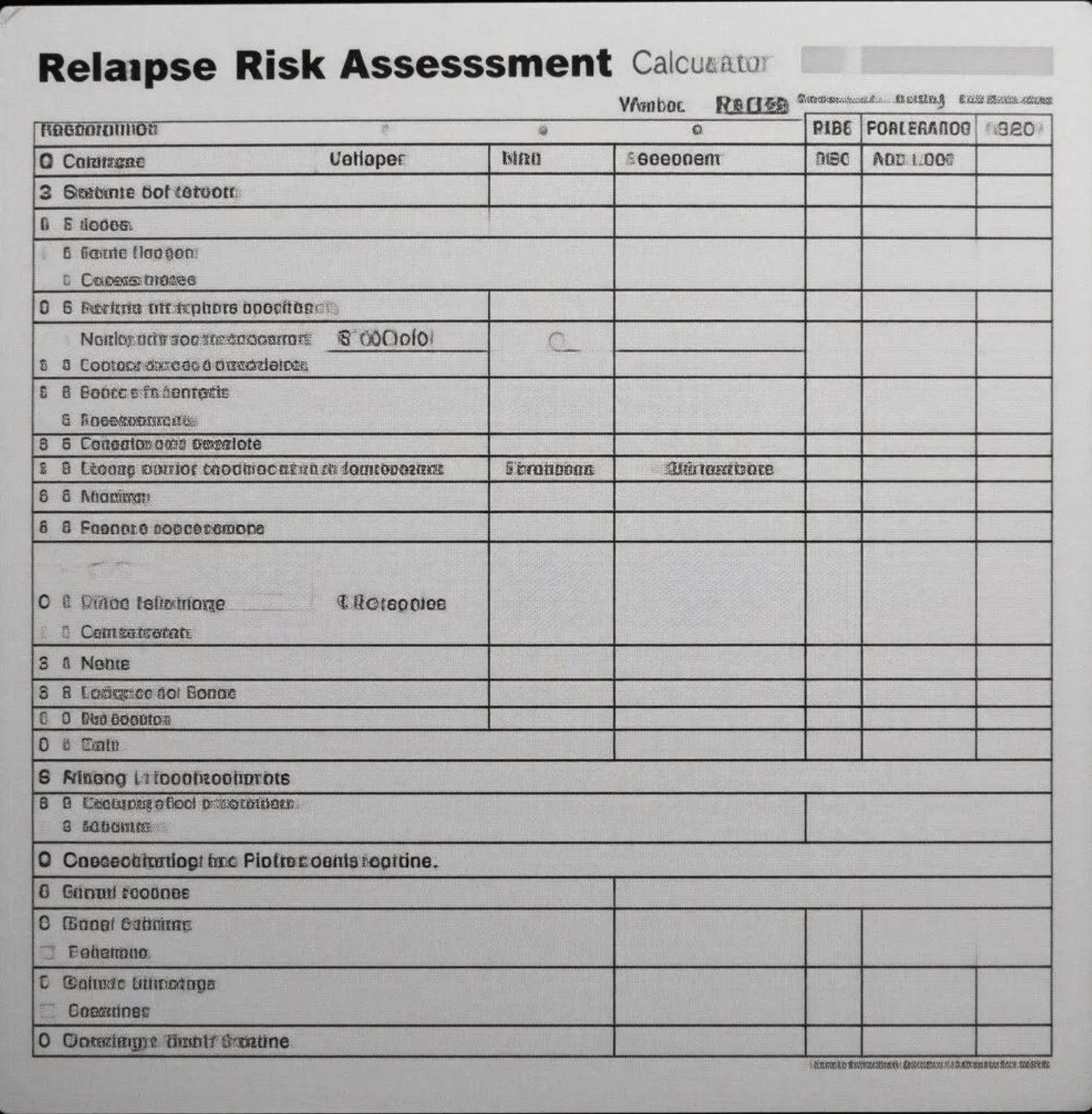Take our free relapse risk assessment to identify your triggers, strengths, and actionable steps to stay sober. Backed by addiction science and recovery experts.
Relapse Risk Assessment: Know Your Triggers, Strengths, and Next Steps
Relapse doesn’t have to be part of your story. Our science-backed calculator helps you understand your personal risk factors and gives you the tools to stay on track.
👉 Start Your Free Assessment Now
Relapse Risk Assessment Calculator
Take this 5-question assessment to understand your relapse risk and get personalized tips to stay sober.
Your Relapse Risk Assessment
Your risk level:
Tips to Stay Sober:
Know the Facts of Relapse
Did you know that 40-60% of people in recovery experience a relapse? While relapse is common, it’s not inevitable. The key to staying sober is understanding your personal risk factors – from triggers like stress and cravings to protective factors like support systems and coping skills.
Our Relapse Risk Assessment Calculator is designed to help you:
- Identify your unique triggers and vulnerabilities
- Highlight your strengths and resources
- Get personalized tips to reduce your risk
Take 2 minutes to complete the assessment – it could be the step that keeps you on track.
How the Relapse Risk Calculator Works
Steps:
- Answer 5 Quick Questions: About your sobriety, cravings, support systems, and stress levels.
- Get Your Risk Score: Low, Medium, or High – based on addiction science.
- Receive Personalized Tips: Actionable steps to strengthen your recovery.
Example:
“After 6 months sober, Sarah took the assessment and discovered her risk was Medium due to work stress. The tips helped her create a daily self-care routine – and she’s now 2 years sober.”
Why Understanding Your Relapse Risk is Crucial
Relapse often happens when people underestimate their triggers or overestimate their ability to cope. By understanding your risk factors, you can:
- Avoid high-risk situations (e.g., bars, parties, toxic relationships)
- Build a stronger support system (e.g., sponsors, therapists, sober friends)
- Develop healthier coping skills (e.g., mindfulness, exercise, journaling)”
Studies show that people who actively manage their relapse risk are 3x more likely to stay sober long-term. Knowledge is power – and this tool gives you the insights you need to protect your recovery.
